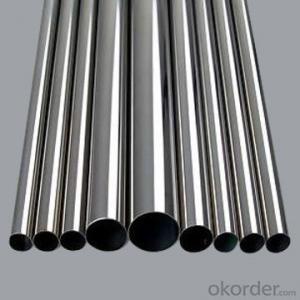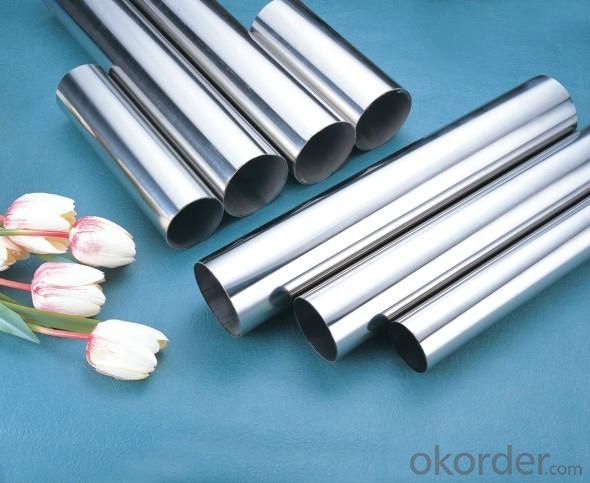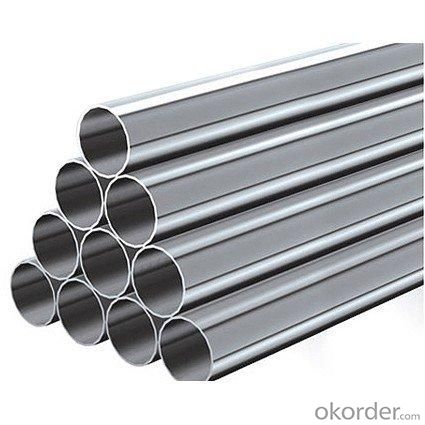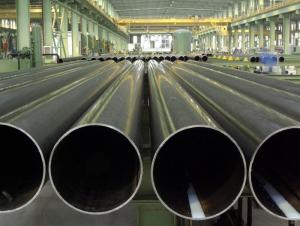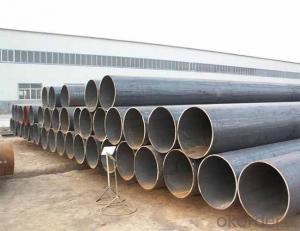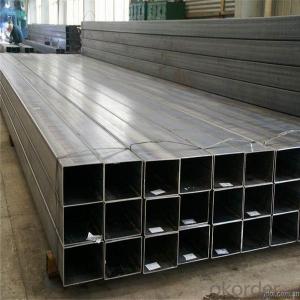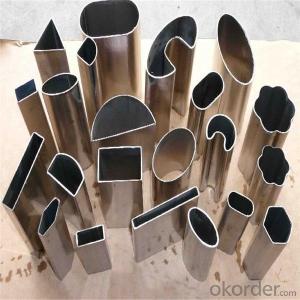High Luster,Elegance,Rigidity And Durability Stainless Steel Welded Tube
- Loading Port:
- Tianjin
- Payment Terms:
- TT OR LC
- Min Order Qty:
- 50 m.t.
- Supply Capability:
- 5000 m.t./month
OKorder Service Pledge
OKorder Financial Service
You Might Also Like
Quick Details
Standard: JIS, AISI, ASTM, GB, DIN, EN
- Model Number: SUS 201 304 316 430
Type: Welded
Steel Grade: 300 Series, TP304
Application: Decorations, constructions,Heat Interchangers and heaters,etc.
Certification: BV
Welding Line Type: ERW
Thickness: 0.25--5.0mm
Outer Diameter: 10*10mm----100*100mm
Length: 6M,or as per requirement
Finishing: Sanded,400 gloss,600--1000 mirror, brushed,etc.
Specification: 30*30*1.5
Packaging & Delivery
| Packaging Details: | Each pipe has the plastic bag to packed it ,and several will be bundled by weaving bag. |
|---|---|
| Delivery Detail: | 25-30 days, depends on customers' order quantity |
High Luster,Elegance,Rigidity And Durability Stainless Steel Welded Tube
Hot selling 304 stainless steel welded square pipe with favorable price
| Specification | |
| Material | 304:0cr18ni9, 0cr17ni8 |
| 201:1cr17mn6ni5n,1cr13mn9ni1n | |
| 316:0cr17Ni12 | |
| or as customer's request | |
| Standard | ASTM A554, Q/GBS1-2005, customers' requests available |
| Size | 10*10mm,12*12mm,18*18mm,23*23mm,38*38mm,50*50mm, |
| 70*70mm,100*100mm,20*10mm,23*11mm,24*12mm, | |
| 25*13mm,36*23mm,40*20mm,50*20mm,60*15mm,75*45mm, | |
| 80*60mm,95*45mm,100*60mm,120*60mm,150*100mm, | |
| (or customized) | |
| Thickness | 0.25mm-5.0mm |
| Length | 6m or according to customers' request |
| Tolerance | Outer diameter:±0.2mm |
| Thickness:±0.05mm | |
| Length:±0.5mm | |
| Process Method | Cold drawn, Annealed with nitrogen protection, Ultrasonic welding, |
| Automatic shape, Polished, Packing. | |
| Ends | In plain end or bevelled ends or as customers' requirements |
| Finishing | A. Sanded |
| B. 400#-600# mirror | |
| C. Hairline brushed | |
| D. TIN titanlum plated | |
| E. HL brushed & mirror(two kinds of finishing for one pipe) | |
| Inner Packing | Plastic bag |
| Outer Packing | Standard gunny packed for each bundle, around 300-500kgs per |
| bundle, or customized according to customers' requests | |
| Application | Heat Interchangers and heaters |
| Decorations, constructions | |
| Oil and chemical industry | |
| Food industry and pharmaceutical industry | |
| Ship-building and automobile manufacturing | |
| Water transportation systems | |
| Performance | Rustless, stainless, good corrosion resistance, anti-wearing, good |
| appearance, excellent mechanical properties | |
| Certification | ISO, SGS,BV. |
| Welding Line Type | ERW(Electrical Resistance Weld) |
| Delivery Detail | 15~25 days, depends on customers' order quantity |
- Q: How are steel pipes used in the automotive exhaust system?
- Steel pipes are used in the automotive exhaust system to transport and expel the exhaust gases from the engine. They are durable and resistant to high temperatures, making them suitable for this purpose. Steel pipes are often bent and welded together to form the exhaust system, ensuring a smooth flow of exhaust gases and minimizing any leaks.
- Q: How are steel pipes used in the construction of highways?
- Steel pipes are commonly used in the construction of highways for various purposes, such as drainage systems, culverts, and sign supports. They provide a durable and efficient solution for transporting stormwater and preventing damage to the road surface. Additionally, steel pipes are utilized to support highway signs and traffic signals, ensuring their stability and longevity.
- Q: Can steel pipes be used for steam applications?
- Yes, steel pipes can be used for steam applications. Steel pipes are known for their high strength and durability, making them suitable for carrying steam at high temperatures and pressures. They are resistant to corrosion and can withstand the harsh conditions of steam systems, making them a popular choice in various industries such as power generation, oil and gas, and chemical processing.
- Q: What are the common applications of steel pipes in construction?
- Steel pipes are commonly used in construction for various applications such as structural support, plumbing, water distribution, gas transportation, and HVAC systems. They provide strength, durability, and resistance to corrosion, making them an ideal choice for these purposes.
- Q: How are steel pipes used in the construction of industrial facilities?
- Steel pipes are commonly used in the construction of industrial facilities for various purposes such as transporting fluids, gases, and steam, as well as providing structural support and carrying electrical wiring. They are durable, resistant to corrosion, and can withstand high pressure and temperature, making them ideal for industrial settings.
- Q: Can steel pipes be used for hydronic heating systems?
- Yes, steel pipes can be used for hydronic heating systems. Steel pipes are commonly used in hydronic heating systems due to their durability, strength, and ability to withstand high temperatures and pressures. They are also resistant to corrosion, making them suitable for long-term use in these systems.
- Q: Can steel pipes be used for oil wells?
- Yes, steel pipes can be used for oil wells. Steel pipes are highly durable and resistant to corrosion, making them suitable for the harsh conditions and high-pressure environments encountered in oil drilling operations.
- Q: What are the different sizes available for steel pipes?
- Steel pipes are available in a wide range of sizes, ranging from small diameter pipes typically used for plumbing purposes, to large diameter pipes used in industrial applications. These sizes can vary significantly depending on the specific requirements and intended use of the pipe, but common sizes include 1/2 inch, 3/4 inch, 1 inch, 2 inch, 4 inch, 6 inch, 8 inch, and 10 inch, among others.
- Q: Are steel pipes suitable for food processing facilities?
- Yes, steel pipes are suitable for food processing facilities. Steel is a durable and hygienic material that is resistant to corrosion, making it ideal for transporting food products and maintaining their quality and safety. Additionally, steel pipes are easy to clean and disinfect, further ensuring sanitation standards in food processing facilities.
- Q: Can steel pipes be used for heat transfer applications?
- Yes, steel pipes can be used for heat transfer applications. Steel is a good conductor of heat, making it suitable for transferring heat from one place to another. Steel pipes are often used in various heat transfer systems, such as in heating, ventilation, and air conditioning (HVAC) systems, as well as in industrial applications where heat needs to be transported efficiently.
Send your message to us
High Luster,Elegance,Rigidity And Durability Stainless Steel Welded Tube
- Loading Port:
- Tianjin
- Payment Terms:
- TT OR LC
- Min Order Qty:
- 50 m.t.
- Supply Capability:
- 5000 m.t./month
OKorder Service Pledge
OKorder Financial Service
Similar products
Hot products
Hot Searches
Related keywords
